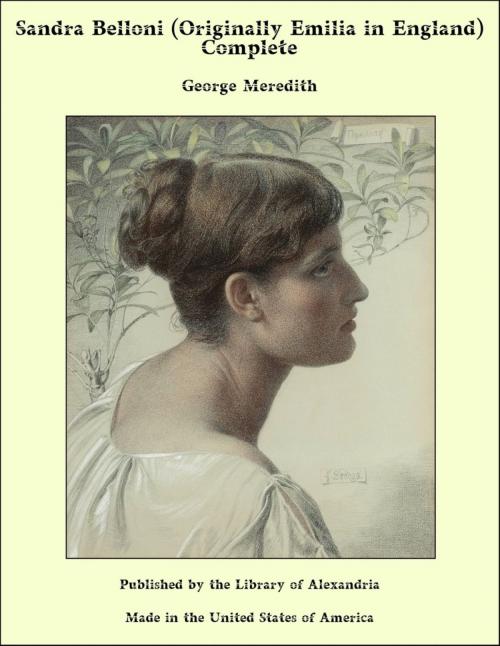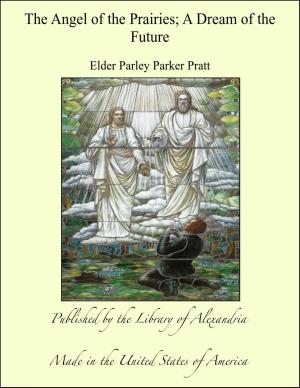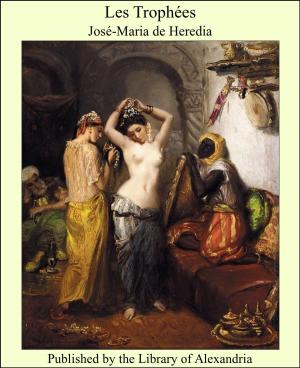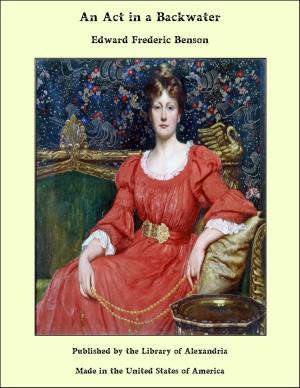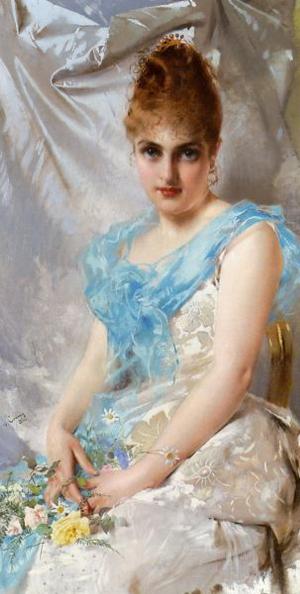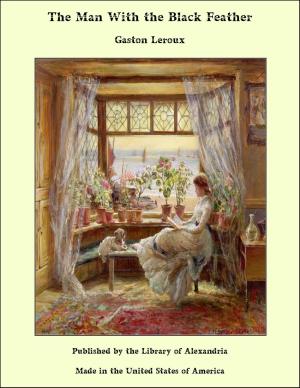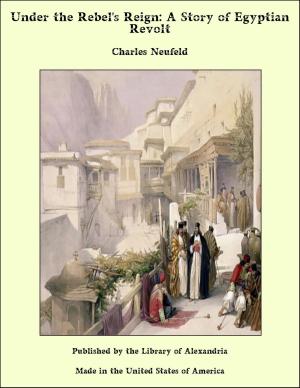Sandra Belloni (Originally Emilia in England) Complete
Nonfiction, Religion & Spirituality, New Age, History, Fiction & Literature| Author: | George Meredith | ISBN: | 9781465603678 |
| Publisher: | Library of Alexandria | Publication: | March 8, 2015 |
| Imprint: | Language: | English |
| Author: | George Meredith |
| ISBN: | 9781465603678 |
| Publisher: | Library of Alexandria |
| Publication: | March 8, 2015 |
| Imprint: | |
| Language: | English |
We are to make acquaintance with some serious damsels, as this English generation knows them, and at a season verging upon May. The ladies of Brookfield, Arabella, Cornelia, and Adela Pole, daughters of a flourishing City-of-London merchant, had been told of a singular thing: that in the neighbouring fir-wood a voice was to be heard by night, so wonderfully sweet and richly toned, that it required their strong sense to correct strange imaginings concerning it. Adela was herself the chief witness to its unearthly sweetness, and her testimony was confirmed by Edward Buxley, whose ear had likewise taken in the notes, though not on the same night, as the pair publicly proved by dates. Both declared that the voice belonged to an opera-singer or a spirit. The ladies of Brookfield, declining the alternative, perceived that this was a surprise furnished for their amusement by the latest celebrity of their circle, Mr. Pericles, their father's business ally and fellow-speculator; Mr. Pericles, the Greek, the man who held millions of money as dust compared to a human voice. Fortified by this exquisite supposition, their strong sense at once dismissed with scorn the idea of anything unearthly, however divine, being heard at night, in the nineteenth century, within sixteen miles of London City. They agreed that Mr. Pericles had hired some charming cantatrice to draw them into the woods and delightfully bewilder them. It was to be expected of his princely nature, they said. The Tinleys, of Bloxholme, worshipped him for his wealth; the ladies of Brookfield assured their friends that the fact of his being a money-maker was redeemed in their sight by his devotion to music. Music was now the Art in the ascendant at Brookfield. The ladies (for it is as well to know at once that they were not of that poor order of women who yield their admiration to a thing for its abstract virtue only)—the ladies were scaling society by the help of the Arts. To this laudable end sacrifices were now made to Euterpe to assist them. As mere daughters of a merchant, they were compelled to make their house not simply attractive, but enticing; and, seeing that they liked music, it seemed a very agreeable device. The Tinleys of Bloxholme still kept to dancing, and had effectually driven away Mr. Pericles from their gatherings. For Mr. Pericles said: "If that they will go 'so,' I will be amused." He presented a top-like triangular appearance for one staggering second. The Tinleys did not go `so' at all, and consequently they lost the satirical man, and were called 'the ballet-dancers' by Adela which thorny scoff her sisters permitted to pass about for a single day, and no more. The Tinleys were their match at epithets, and any low contention of this kind obscured for them the social summit they hoped to attain; the dream whereof was their prime nourishment.
We are to make acquaintance with some serious damsels, as this English generation knows them, and at a season verging upon May. The ladies of Brookfield, Arabella, Cornelia, and Adela Pole, daughters of a flourishing City-of-London merchant, had been told of a singular thing: that in the neighbouring fir-wood a voice was to be heard by night, so wonderfully sweet and richly toned, that it required their strong sense to correct strange imaginings concerning it. Adela was herself the chief witness to its unearthly sweetness, and her testimony was confirmed by Edward Buxley, whose ear had likewise taken in the notes, though not on the same night, as the pair publicly proved by dates. Both declared that the voice belonged to an opera-singer or a spirit. The ladies of Brookfield, declining the alternative, perceived that this was a surprise furnished for their amusement by the latest celebrity of their circle, Mr. Pericles, their father's business ally and fellow-speculator; Mr. Pericles, the Greek, the man who held millions of money as dust compared to a human voice. Fortified by this exquisite supposition, their strong sense at once dismissed with scorn the idea of anything unearthly, however divine, being heard at night, in the nineteenth century, within sixteen miles of London City. They agreed that Mr. Pericles had hired some charming cantatrice to draw them into the woods and delightfully bewilder them. It was to be expected of his princely nature, they said. The Tinleys, of Bloxholme, worshipped him for his wealth; the ladies of Brookfield assured their friends that the fact of his being a money-maker was redeemed in their sight by his devotion to music. Music was now the Art in the ascendant at Brookfield. The ladies (for it is as well to know at once that they were not of that poor order of women who yield their admiration to a thing for its abstract virtue only)—the ladies were scaling society by the help of the Arts. To this laudable end sacrifices were now made to Euterpe to assist them. As mere daughters of a merchant, they were compelled to make their house not simply attractive, but enticing; and, seeing that they liked music, it seemed a very agreeable device. The Tinleys of Bloxholme still kept to dancing, and had effectually driven away Mr. Pericles from their gatherings. For Mr. Pericles said: "If that they will go 'so,' I will be amused." He presented a top-like triangular appearance for one staggering second. The Tinleys did not go `so' at all, and consequently they lost the satirical man, and were called 'the ballet-dancers' by Adela which thorny scoff her sisters permitted to pass about for a single day, and no more. The Tinleys were their match at epithets, and any low contention of this kind obscured for them the social summit they hoped to attain; the dream whereof was their prime nourishment.
